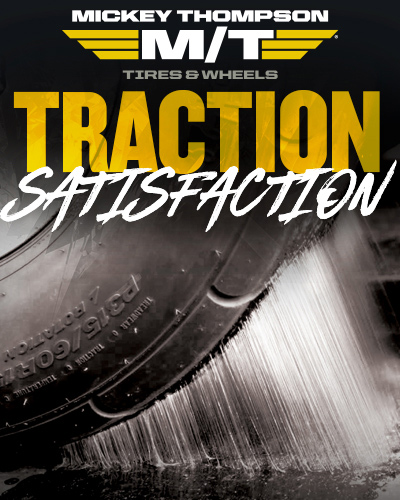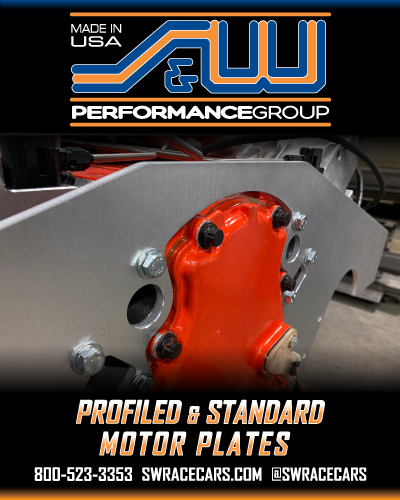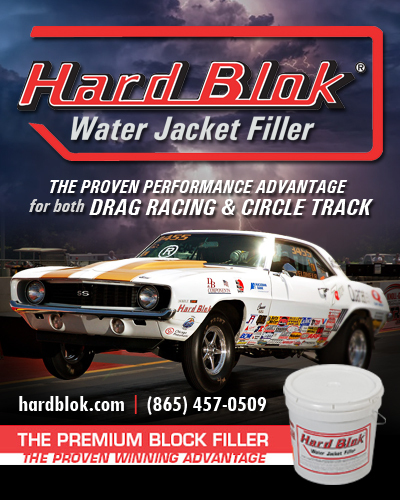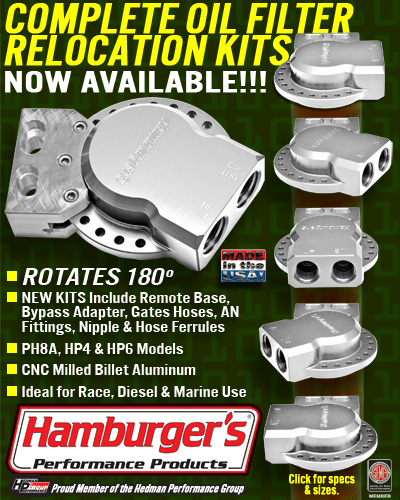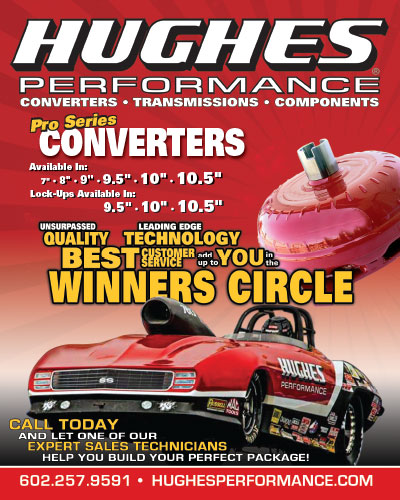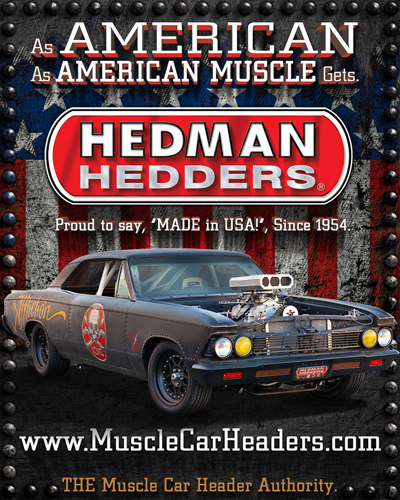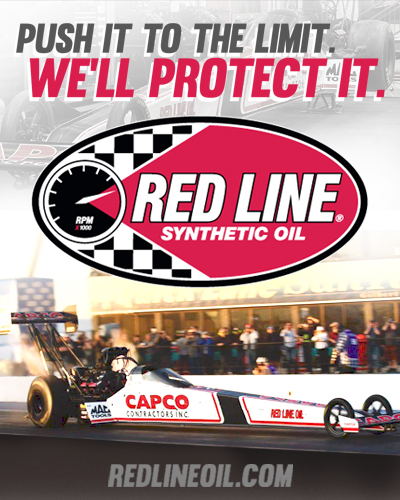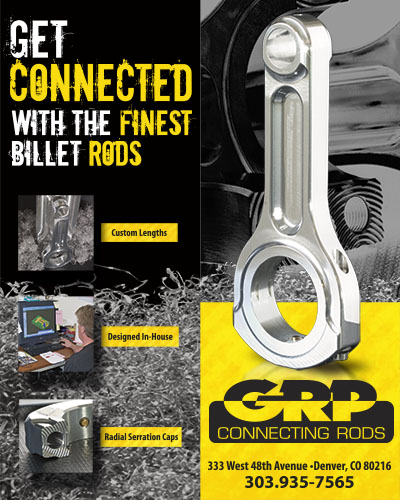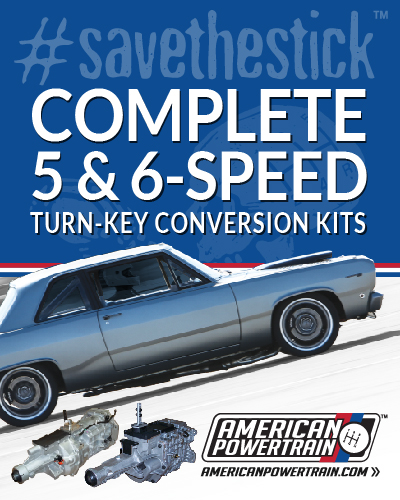TALKING WITH DON SCHUMACHER
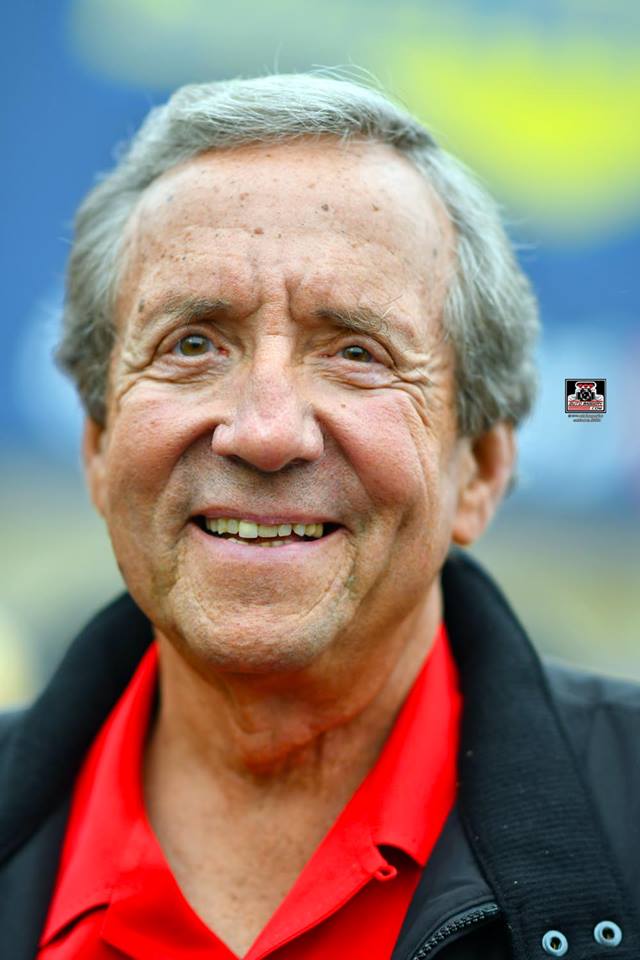 Look up the definition of driven, and if there isn't a photo of Don Schumacher, then there should be.
Look up the definition of driven, and if there isn't a photo of Don Schumacher, then there should be.
As a racer, Schumacher was fairly successful, but as a team owner the son of successful Chicago-area business owners clearly established his legend as a team owner and after a double-up victory at the recently completed NHRA Winternationals, he scored team victory No. 295 as a team owner.
Schumacher is also vocal about drag racing and carefully monitors its path. Sometimes he rolls with the flow, but sometimes his passion inspires him to speak out against the grain.
Saturday afternoon, at the NHRA Winternationals in Pomona, Ca., CompetitionPlus.com Publisher/Editor Bobby Bennett caught up with the Hall of Fame drag racing personality for an interview.
BOBBY BENNETT: Don, do you ever wish sometimes you were more successful at being a drag racer than you are as a team owner?
DON SCHUMACHER - I never really look back and wish I could change things. I’m blessed with where I am in my life with what I’ve accomplished family-wise, business-wise, racing-wise, so I really have no regrets or anxiety to what I did back when I raced to what’s going on today.
BB - So you’ve been a year, two years cancer-free now?
DS - I’m two years.
BB - Did you ever think that you had inside of yourself the fight to go through all of that? Or did you surprise yourself?
DS - You never know it until you have to face these monsters. It isn’t something that you even think about or can imagine or understand until you have cancer. You think you do from family members and friends and things like that. My wife has had cancer twice and being there with her for the fight and everything else, I felt I understood a little bit. But until you have it, you don’t understand at all.
BB - Looking back, you’re a man who says you have really no regrets, or not regrets in the sport here. But going back to the time when it was just you and Tony racing out here, do you ever have any regrets that you let this grow as big as it did?
DS - I’m a businessman, and I do what I feel is the right thing to do for the organization, Don Schumacher Racing, the people that I employ, the sport of NHRA Drag Racing, the fans. So, do I wish I still only had a one-car team? No, like I said, I have no regrets about anything I’ve done. I have no regrets today that I have eight teams, and seven of them are running here at Pomona. I wish all eight of them were running here, but I don’t have the sponsorship to run the eighth car. So, again, I have no regrets about yesterday.
BB - Because you’re such an aggressive, successful business man, would you say that aggressiveness and that desire to keep pushing beyond is a blessing or a curse?
DS - It’s a curse. It was a curse as I raised my children, it was a curse as I’ve gone on in life and always want to excel and be the best I can be.
BB - Now Don, we look at it this year, the NHRA has a rule that you can only field four teams in each class. How do you feel about that? Do you feel that inevitably hurts drag racing, or should you be able to field as many teams as you can?
DS - The Association has reasons for its rules. I abide by all of their rules although I may have a different opinion about some of them. I feel today in the sport if people can attract the sponsors and end up with more than four teams in one of the fuel classes, come on ahead. We need all of the help we can get out here - we need all of the teams we can get. So, I’m not against the rule, I just don’t think there’s a need to have that rule in place.
 BB - Obviously you see those who say these mega teams are killing the sport for the little guys. But do you think they fully understand that it’s because of you guys, that you’re keeping a lot of drivers employed out here?
BB - Obviously you see those who say these mega teams are killing the sport for the little guys. But do you think they fully understand that it’s because of you guys, that you’re keeping a lot of drivers employed out here?
DS - I don’t believe the little teams, and the little guys really understand everything it takes to do the job out here. And that’s not belittling anybody out here. I think the world of every one of them. I’ll assist any one of them that asks for help, or I’ll offer it up to anybody. But there’s a huge effort that DSR puts forth to build and maintain the relationships that I have with my sponsors.
BB - There’s so much said about the cost of fielding one of these teams. Have we effectively let the genie out of the bottle here on cost, that no matter what we can do we can’t make these cars any cheaper to run?
DS - Oh yeah. That horse is out of the gate; the genie’s out of the bottle, there isn’t any way to step back, I believe. I don’t know how you could come out here, make a major change in the way these cars are run without causing the team owners to have to put aside and throw away millions of dollars of parts and pieces.
BB - This rivalry between you and John Force. I mean, it’s been like one of the greatest natural rivalries in drag racing. It’s like you guys go back and forth trying to one up one another on crew chiefs. Is that the case, is it personal here?
DS - It’s personal. It’s not the case on my part. When Jimmy Prock and John Medlen left John Force and came over to DSR with all of the crew members, I did not get them to come over. They left John Force Racing because they were unhappy there. Talked to Jimmy for years and years. If there was ever an opportunity, I would have loved to have hired him.
John Force took Jimmy Prock back there with a lot of promises, and I feel it’s damaging the sport terribly. I have nothing but the desire to beat John Force every time we pull up against him on the starting line.
BB - And even in the sponsor world?
DS - In the sponsor world too.
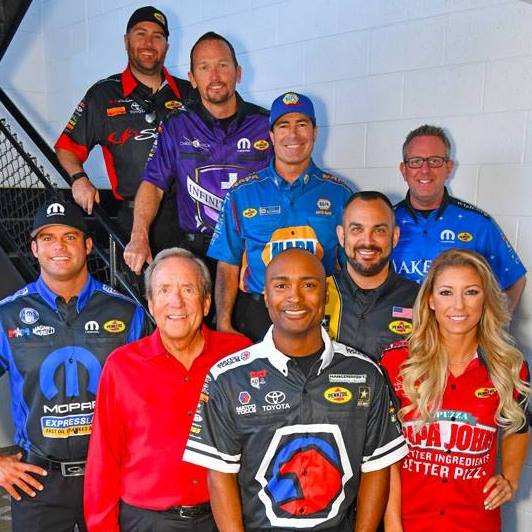 BB - I guess in a way, Kenny Bernstein took crew chiefs to a new level when he brought in Dale Armstrong. And then when you brought in Alan Johnson, you kind of took it to another level. A whole new level. Was that bringing Alan Johnson to do the Army team, was that something that you saw necessary to advance this sport to the next level?
BB - I guess in a way, Kenny Bernstein took crew chiefs to a new level when he brought in Dale Armstrong. And then when you brought in Alan Johnson, you kind of took it to another level. A whole new level. Was that bringing Alan Johnson to do the Army team, was that something that you saw necessary to advance this sport to the next level?
DS - I don’t necessarily look at it as something I did to advance the sport to the next level. I needed to do the right thing for my sponsor, and Don Schumacher Racing and bringing Alan Johnson in was the right thing for me to do. Alan does a terrific job out here. You have to respect him tremendously with the performance that he puts into these race cars and how well he does.
BB - When you had Alan Johnson over here, that was the benchmark of all of this. So, when you come to a season-opening race like this, and you see short fields, how can we fix this?
DS - I don’t have that answer. If I had that easy answer, I would give it to you. I have a lot of opinions and a lot of feelings about things, but I don’t feel I have the answer. It takes the whole PRO board and NHRA, and our third partner, the race track owners, working together to figure out how to benefit everything. We have three partners out here and we have to work together as partners.
BB - You stepped away from the PRO board for a while, I believe it was a couple of years ago, and now you’re back involved. Is renewed faith in the organization the reason you came back?
DS - Definitely, I have renewed faith in the organization. For the betterment of my sponsors, my teams, and anything that I can do for the sport, I need to be a part of that PRO board. I’m the largest team owner out here, I need to be involved in the sport in all of it’s depths.
BB - How hard is it for you not to be so hands-on in the largest team in drag racing out here?
DS - I think if you talk to my crew chiefs and my people, I’m pretty darn hands on. I’m aware of what’s going on, and I get with everybody all the time. I try to assist them in doing the best possible job they can. I’ll give them any tool and any part they request, and try to assist them to perform at the very highest level.
BB - I understand, and Matt Hagan brought up, that you had a team meeting with your drivers, I guess it was yesterday. It’s pretty early to have the coming to Jesus meeting with your team. Is there a sense of urgency that you feel that anything less than total domination is failure?
DS - Gosh no, that wasn’t a come to Jesus meeting. That was a let’s get together and talk about what we can do to take care of our sponsors better, what we can do to excel out here on the starting line, on the race track. None of it was, at least I didn’t try to come across as a hardcore come to Jesus meeting. It was really a very positive meeting in my eyes.
There’s things that we have to do to take care of our sponsors, the sponsor’s employees and hospitality people that come out here. Social media is a huge part of it. None of it was ‘I need to beat somebody up’. We had a great year in 2016. We won both Fuel Championships.
We did very, very well, so I have nothing but positive to say about my team, my team members, my drivers. It was just a get together that we needed to have.
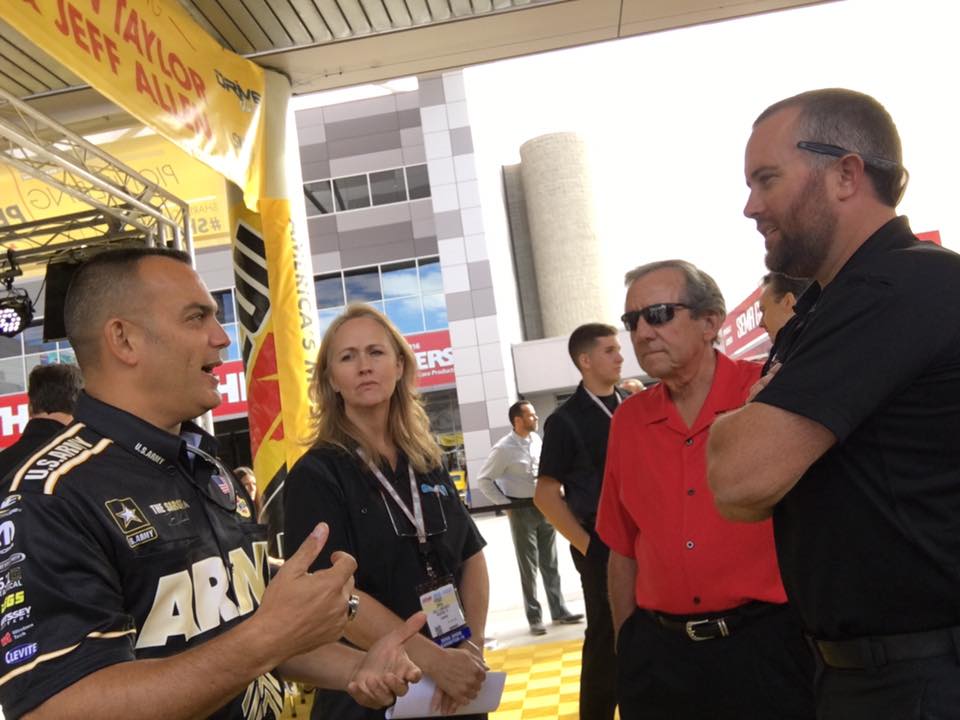 BB - You were clearly at the top of the game when it came to promotions in the 1970s with your teams and marketing them, multiple teams, multiple match races. How hard has it been to kind of forget all you did back in the old days and embrace today’s new marketing approaches?
BB - You were clearly at the top of the game when it came to promotions in the 1970s with your teams and marketing them, multiple teams, multiple match races. How hard has it been to kind of forget all you did back in the old days and embrace today’s new marketing approaches?
DS - You better be willing to change in this world. In this business world or any business world, you better be willing to change and look at what’s going on, and try to figure out how do we get more in touch with the millennials. How do we get more in touch with the smart phones and the computers?
This sport needs to advance in that direction. NHRA and the teams and the racetracks are working in that direction very, very hard. So, I don’t regret what I did back in the 60s and 70s and what I accomplished back then, but I have to leave that behind us and worry more about the 2017 and what we’re going to do for 2018, 2019 and 2020.
We need to keep advancing the sport. Attendance was up last year. TV viewership was up last year. We need to keep working in those areas to make both of those things better for the whole sport. We need to bring in more sponsors to get more teams out here and make it a better situation for everybody.
BB - Speaking of those sponsorships, how hard was it to park the Dragster driven by Shawn Langdon?
DS - Oh, I hated it. I hated it. I hate not having everybody out here working and accomplishing what they can accomplish out here. It’s something that hurts me.
BB - Do you think there are too many races out here?
DS - No, not at all. We need to be all over the country as we are. We need to be in all of these markets. We need to supply our sponsors with all of these marketing opportunities in each one of these markets. And if you start taking some of these markets away from the sport, it’s going to affect our sponsors in a negative way. I think it would be a mistake to cut down the number of races we have.
BB - Now, it’s not the norm that a 60-something-year-old gentleman just embraces social media the way you have. Was that something you had to force yourself into? Or did it just come naturally?
DS - First off, I’m a 72 year old man. I wish I was 60-something. I’ll take back a number of years and re-live them if I could. I enjoy my life, and I enjoy what I do. You better stay in tune with the world if you’re going to stay in business. That’s just the way I am. Whether it be here at racing, or whether it be at Schumacher Electric. It’s something that you have to do.
BB - Now, it’s been said, how can you really retire from something you love. Do you really see yourself ever retiring?
DS - No, I do not. I love my life; I love what I do. I wish I had more time to spend with my wife and my family and fishing and traveling and that. But, I have as much time as I need so I can do as much of that as I choose to do. I love what I do, I love my businesses, and I will continue on for the foreseeable future.
BB - When you left drag racing in 1974 to take over the family business, could you have ever envisioned what you have today?
DS - Never would have dreamt it. I felt I needed to step away from the sport then for numerous reasons and most of them were personal. And I’m glad I did. But I never imagined that the sport could grow to what it is today, and what it’s been for the last 20 years. It’s amazed me. It’s amazing what NHRA Drag Racing is today and I look for a very bright future with NHRA Drag Racing.
























